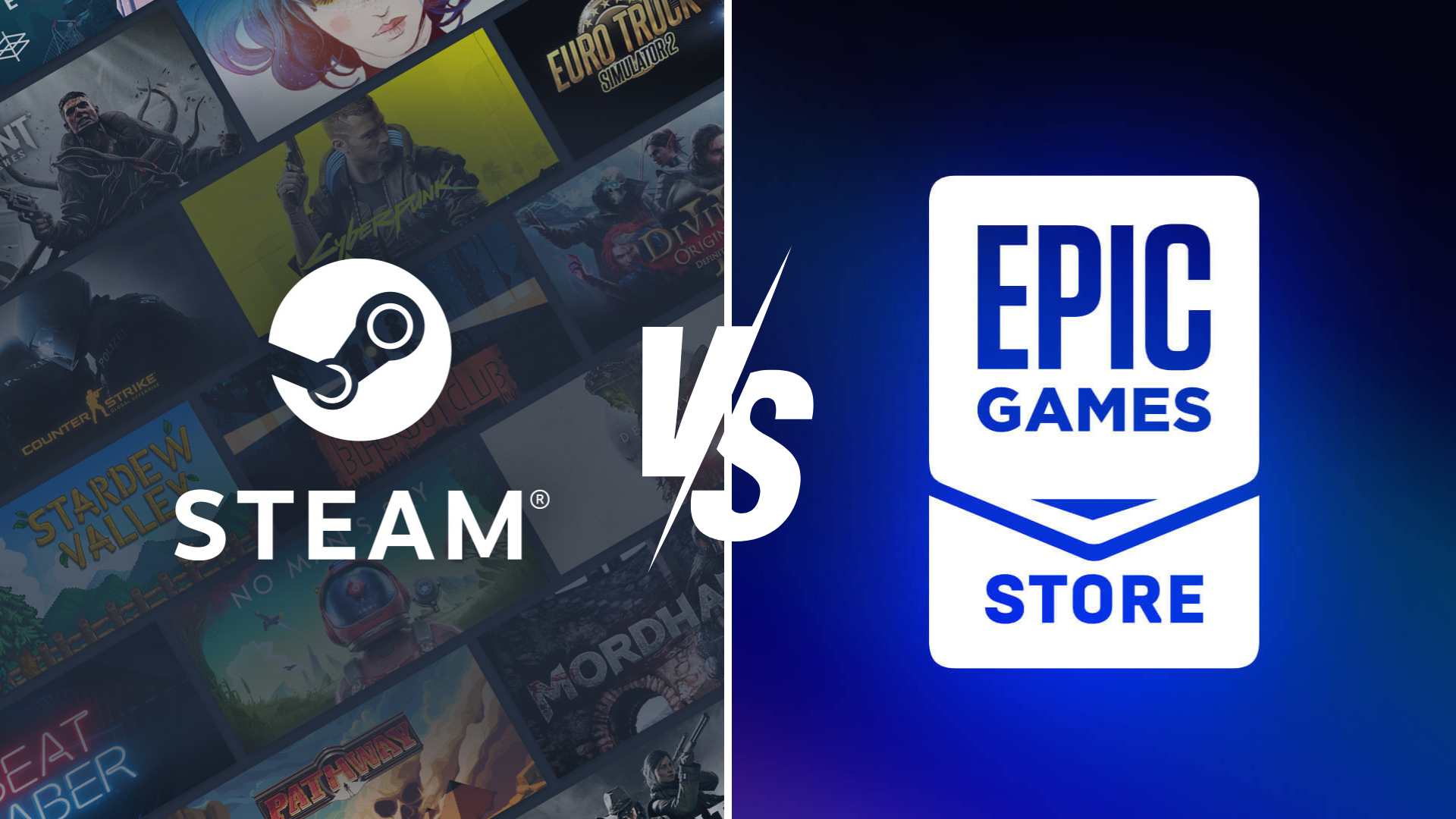
Steam vs Epic Games: Comparing The Two Most Popular Digital Gaming Platforms
In today's digital era, Steam and Epic Games Store stand as the two largest digital game distribution platforms competing for market dominance. Each offers unique experiences and advantages. Let's dive into a detailed comparison to help you determine which platform might better suit your needs.
GAME INDUSTRY
Anwar
5/8/20243 min read
Brief History
Launched by Valve Corporation in 2003, Steam initially served as a platform for distributing updates and patches for Valve games like Counter-Strike. Over time, it evolved into the world's largest digital game distribution platform, hosting over 50,000 games in its catalog.
Epic Games Store emerged in December 2018, making an immediate impact by offering more favorable revenue sharing for developers (88/12 compared to Steam's 70/30) and implementing an aggressive strategy to secure exclusive games.
Interface and Features Comparison
User Interface
Steam:
Mature and tested interface
Extensive customization options
Complex but comprehensive menus
Powerful library management tools
Epic Games:
Minimalist and modern interface
Simpler navigation
Limited customization options
Basic library management
Social Features
Steam:
Comprehensive friendship system
Real-time chat with voice capabilities
Groups and communities
Integrated game invite system
Epic Games:
Basic social features
Simple chat system
Limited community features
Multiplayer party system
Download and Update Systems
Steam:
Powerful download manager
Download scheduling and throttling
Customizable auto-updates
Built-in backup system
Epic Games:
Basic download manager
Simple auto-update system
No game backup feature
Consistent download speeds
Cloud Gaming
Steam:
Remote Play Together
Steam Link
Cloud saves for most games
Steam Input for controller support
Epic Games:
Cloud saves for selected games
No built-in streaming features
Basic controller support
Game Catalog and Exclusivity
Available Games
Steam leads significantly with over 50,000 games in its catalog, while Epic Games Store has approximately 1000+ games. However, Epic focuses on quality and stricter curation.
Exclusive Games
Steam:
Valve games (Half-Life, Portal, DOTA 2)
Numerous third-party exclusives
Exclusive indie titles
Epic Games:
Fortnite
Many temporal AAA exclusives
Several high-quality indie exclusives
Indie Games Support
Steam:
Steam Direct system
Workshop support
More visibility tools
Larger marketplace
Epic Games:
Stricter curation
Greater financial support
Better revenue share
Developer support programs
Prices and Discounts
Steam:
Regular sales (Summer, Winter, etc.)
Bundle deals
Trading cards and market
Frequent weekend deals
Epic Games:
Weekly free games
Mega sales events
Discount coupons
No market system
Payment Systems and Regional Pricing
Payment Methods
Steam offers more payment options including:
Credit/debit cards
PayPal
Steam Wallet
Local bank transfers
Various regional methods
Epic Games provides:
Credit/debit cards
PayPal
Selected local methods
Regional Pricing
Both platforms implement regional pricing, but Steam offers more flexible pricing that better reflects local economic conditions. Epic Games also has regional pricing but with more limited variations.
Additional Platform Features
Workshop and Mod Support
Steam:
Integrated Steam Workshop
Easy mod management
Large modding community
Automatic mod updates
Epic Games:
No official mod system
Manual modding
Limited mod support
Streaming and Broadcasting
Steam:
Steam Broadcasting
Remote Play Together
TV/mobile streaming
Screenshot and video sharing
Epic Games:
Basic streaming features
No broadcasting
Basic screenshot functionality
Performance and Security
Resource Usage
Steam tends to use more resources due to its complex feature set, while Epic Games remains lighter and more minimalist.
Anti-Cheat Systems
Steam:
VAC (Valve Anti-Cheat)
Third-party anti-cheat support
Comprehensive reporting system
Epic Games:
Easy Anti-Cheat
Third-party anti-cheat support
Basic reporting system
Conclusion
Both Steam and Epic Games have their strengths and weaknesses. Steam excels in features, community, and catalog size, while Epic Games offers better deals for developers, weekly free games, and a simpler approach.
The best choice depends on individual preferences:
If you want a feature-rich platform with a large community, Steam is the right choice.
If you prefer a minimalist platform with regular free games and AAA exclusives, Epic Games might be better suited.
FAQ
Q: Can I use both platforms simultaneously? A: Yes, you can install and use both platforms without any issues.
Q: Which platform is lighter on computer resources? A: Epic Games Store is generally lighter due to its minimalist features.
Q: Can games purchased on one platform be played on the other? A: No, games purchased on one platform can only be played through that platform.
Q: Which has a better refund system? A: Both have similar refund policies (2 hours gameplay/14 days), but Steam has a more streamlined process.
Q: Which platform offers more frequent discounts? A: Steam has more regular sales, but Epic Games offers weekly free games and occasional additional discount coupons.


You might also like
Terms and Conditions
Privacy Policy
PlayEcho
Newest information about game industry and analysis.
Subscribe to our newsletter
© 2025. All rights reserved.








